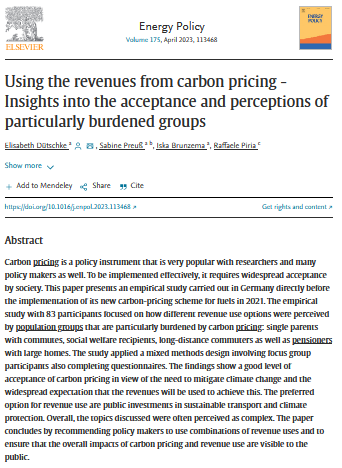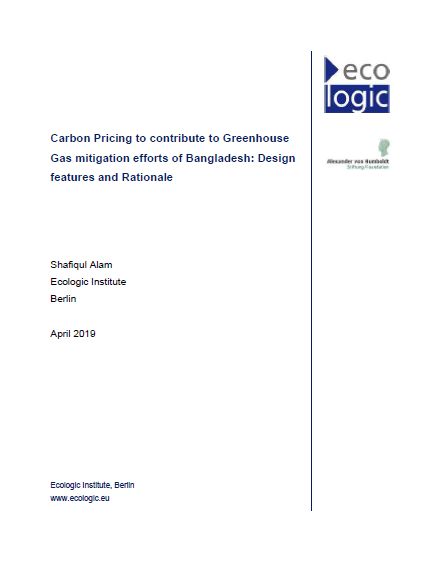Using the Revenues from Carbon Pricing
Insights into the acceptance and perceptions of particularly burdened groups
- Publication
- Citation
Dütschke, Elisabeth et al. 2023: Using the revenues from carbon pricing – Insights into the acceptance and perceptions of particularly burdened groups, Energy Policy, Volume 175.
Carbon pricing is a policy instrument that is very popular with researchers and many policy makers as well. To be implemented effectively, it requires widespread acceptance by society. This paper presents an empirical study carried out in Germany directly before the implementation of its new carbon-pricing scheme for fuels in 2021.
The empirical study with 83 participants focused on how different revenue use options were perceived by population groups that are particularly burdened by carbon pricing: single parents with commutes, social welfare recipients, long-distance commuters as well as pensioners with large homes. The study applied a mixed methods design involving focus group participants also completing questionnaires. The findings show a good level of acceptance of carbon pricing in view of the need to mitigate climate change and the widespread expectation that the revenues will be used to achieve this. The preferred option for revenue use are public investments in sustainable transport and climate protection. Overall, the topics discussed were often perceived as complex. The paper concludes by recommending policy makers to use combinations of revenue uses and to ensure that the overall impacts of carbon pricing and revenue use are visible to the public.





